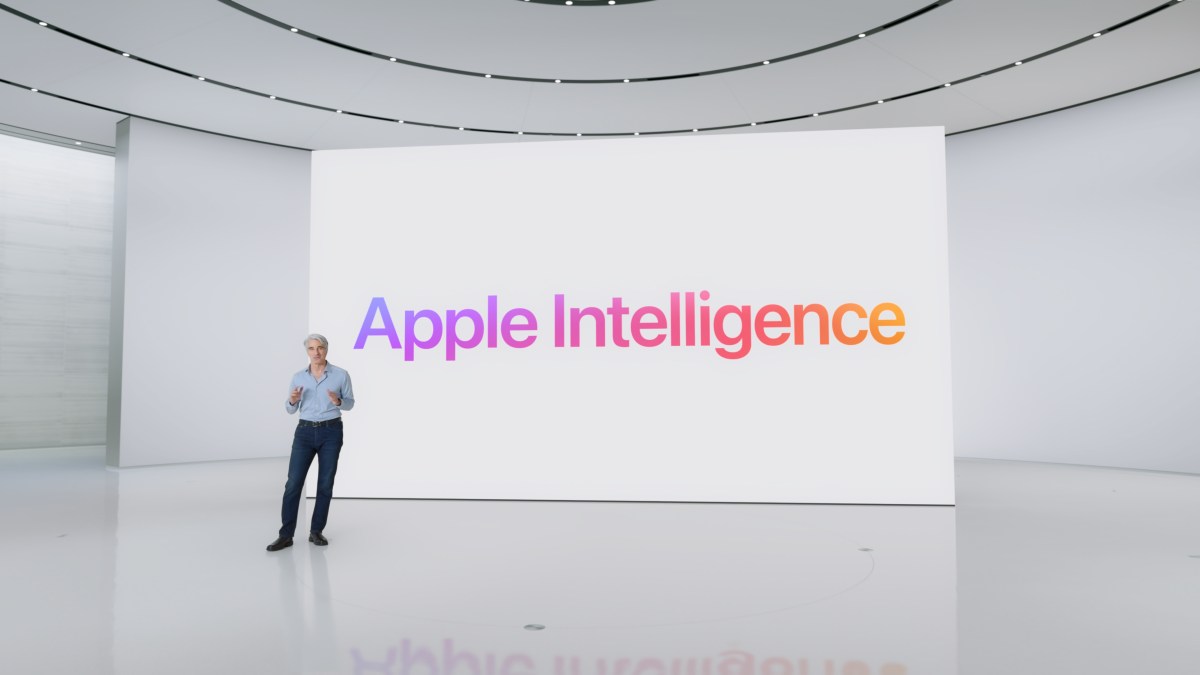
Apple Tuesday unveiled Apple Intelligence, its long awaited, ecosystem-wide push into generative AI. As earlier rumors suggested, the new feature is called Apple Intelligent (A.I., get it?). The company promised the feature will be built with safety at its core, along with highly personalized experiences.
“Most importantly, it has to understand you and be grounded in your personal context, like your routine, your relationships, your communications, and more,” CEO Tim Cook noted at WWDC Monday. “And of course, it has to be built with privacy from the ground up together. All of this goes beyond artificial intelligence. It’s personal intelligence, and it’s the next big step for Apple.”
The company has been pushing the feature as integral to all of its various operating system offerings, including iOS, macOS and the latest, VisionOS.
“It has to be powerful enough to help with the things that matter most to you,” Cook added. “It has to be intuitive and easy to use. It has to be deeply integrated into your product experiences. Most importantly, it has to understand you and be grounded in your personal context, like your routine, your relationships, your communications and more and of course, it has to be built with privacy from the ground up. Together. All of this goes beyond artificial intelligence. it’s personal intelligence. and it’s the next big step for Apple.”
SVP Craig Federighi added, “Apple intelligence is grounded in your personal data and context.” The feature will effectively build upon all of the personal data that users input into applications like Calendar and Maps.
The system is built on large language and intelligence models. Much of that processing is done locally according to the company, utilizes the latest version Apple silicon. “Many of these models run entirely on device,” Federighi claimed during the event.
That said, these consumer systems still have limitations. As such, some of the heavy lifting needs to be done off device in the cloud. As such, Apple is adding Private Cloud Compute” to the offering. The backend uses services that run Apple chips, in a bid to increase privacy for this highly personal data.
Apple Intelligence also includes what is likely the biggest update to Siri since it was announced more than a decade ago. the company says the feature is “more deeply integrated” into its operating systems. In the case of iOS, that means trading the familiar Siri icon for a blue glowing border that surrounds the desktop while in use.
Siri is no longer just a voice interface. Apple is also adding the ability to type queries directly into the system to access its generative AI-based intelligence. It’s an acknowledgment that voice is often not the best interface for these systems.
App Intents, meanwhile, brings the ability to integrate the assistant more directly into different apps. That will start with first party applications, but the company will also be opening up access to third parties. That addition will dramatically improve the kinds of things that Siri can do directly.
Apple Intelligence will be rolling out to the latest versions of its operating systems, including iOS and iPadOS 18, macOS Sequoia and visionOS 2.
